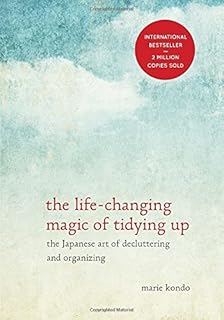eclecticism (Also eclecticisms) : Related Words Words similar in meaning to eclecticism
- eclectic method«
- eclecticism«
- eclectic«
- eclecticist«
- discriminating«
- diacritic«
- -icism«
- philo«
- thought«
- peripatetic«
- good«
- theories«
- plato«
- selectivity«
- style«
- antiochus«
- value«
- phenomena«
- doctrine«
- treasure«
- neomodern«
- theory«
- diacritical mark«
- multiple«
- larissa«
- insight«
- mannerism«
- deciding«
- textual criticism«
- decision making«
- term—that«
- prize«
- complementary«
- term eclecticism«
- take«
- art«
- other eclectic«
- new academic doctrine«
- new academic carneades«
- influences—is«
- greek ἐκλεκτικός«
- cicero«
- stoic panaetius«
- pronounced dogmatism«
- new academy scepticism«
- eklektos«
- eclectic spiritualism«
- text witness«
- stoic psychology«
- rational content«
- multiple philosophy«
- critic form opinion«
- alexandrian disposition«
- architecture«
- priori bias«
- martial art«
- philology«
- complementary insight«
- aspect«
- stoic system«
- eclectic tendency«
- psychologist«
- platonic school«
- eklektikos«
- individual witness«
- single paradigm«
- middle platonist«
- polystylism«
- neopythagoreanism«
- platonic theory«
- happiness«
- stylistic variety«
- eclectic medicine«
- ethic«
- middle platonism«
- simplest definition«
- single witness«
- perspectivism«
- roman philosopher«
- false idea«
- dominant method«
- eclectic approach«
- victor cousin«
- actual form«
- multiple theory«
- posidonius«
- philosophical belief«
- firm conviction«
- united bible society«
- aristotelian logic«
- real system«
- conceptual approach«
- behavior«
- single manuscript«
- critical text«
- scholarly activity«
- historical style«
- critical discussion«
- main theory«
- alexandrian text«
- martial arts«
- psychology«
- specific style«
- multiple perspective«
- ascalon«
- behaviorism«
- century architecture«
- ancient philosophy«
- philosophical idea«
- neoplatonism«
- internal evidence«
- platonism«
- varro«
- stoic«
- considerable importance«
- modern philosophy«
- philosophy«
- historicism«
- term«
- nestle«
- greek philosophy«
- zeno«
- combination«
- text«
- scepticism«
- classicism«
- element«
- pastiche«
- influence«
- human behavior«
- life experience«
- decorative art«
- aland«
- lack«
- seneca«
- greek text«
- psyche«
- cognition«
- ancient greek«
- idea«
- origin«
- aristotle«
- contradiction«
- exposition«
- consistency«
- hand«
- mid-19th century«
- simplicity«
- new testament«
- period«
- thinking«
- currency«
- objection«
- implication«
- necessity«
- artifact«
- evaluation«
- neo«
- virtue«
- emotion«
- assumption«
- revival«
- roman«
- explanation«
- consideration«
- dialogue«
- wide variety«
- manuscript«
- witness«
- variant«
- convention«
- pupil«
- transition«
- life«
- reading«
- distinction«
- meaning«
- grade«
- factor«
- technique«
- approach«
- sense«
- instance«
- mind«
- knowledge«
- movement«
- existence«
- teacher«
- rule«
- language«
- practice«
- material«
- subject«
- set«
- reason«
- process«
- variety«
- system«
- founder«
- study«
- type«
- post«
- field«
- role«
- music«
- result«
- discerning«
- discriminative«
- appreciative«
- discriminatory«
- selective«
- diacritical«
- appreciate«
- discriminate«
- know apart«
- choose«
- pick out«
- select«
- groupthink«
- turnabout«
- reversal«
- accent mark«
- accent«
- chooser«
- judging«
- refereeing«
- determination«
- philosopher«
- discriminator«
- sort«
- selection«
- turnaround«
- umlaut«
- determinative«
- determinant«
- excerpt«
- differentiator«
- officiating«
- wedge«
- flip-flop«
- sieve«
- change of mind«
- judgement«
- alternative«
- discrimination«
- winnow«
- picker«
- diaeresis«
- judgment«
- reject«
- choice«
- fix«
- umpirage«
- secernment«
- percipient«
- officiation«
- hacek«
- dieresis«
- cedilla«
- cull«
- tilde«
- settlement«
- resolve«
- macron«
- screen«
- plump«
- selector«
- breve«
- draw«
- option«
- valuable«
- limit«
- clear«
- extract«
- resolution«
- circumflex«
- closure«
- panel«
- vote«
- pick«
- settle«
- go«
- dial«
- elect«
- shrewdness«
- astuteness«
- prescience«
- espousal«
- clearness«
- perspicacity«
- empiricist«
- nominalist«
- existentialist philosopher«
- existentialist«
- lucidity«
- disdain«
- clarity«
- realist«
- volition«
- transcendentalist«
- nativist«
- prejudgment«
- impossibility«
- rethink«
- afterthought«
- existential philosopher«
- aesthetician«
- acceptation«
- reconsideration«
- coloration«
- colouration«
- scorn«
- basic cognitive process«
- acceptance«
- pluralist«
- moralist«
- preference«
- sampling«
- pleasure«
- esthetician«
- naturalist«
- reverse«
- specification«
- nominator«
- tack«
- detail«
- causal factor«
- druthers«
- obverse«
- countermand«
- bent«
- determiner«
- prevision«
- determining factor«
- yogi«
- jurist«
- favourite«
- flip«
- elective«
- repeal«
- conclusion«
- overturn«
- nominative«
- default option«
- default«
- libertarian«
- voter turnout«
- voter«
- favorite«
- reset«
- screener«
- guess«
- boundary«
- followers«
- alternate«
- adoption«
- purpose«
- declaration«
- way«
- terminus ad quem«
- prejudgement«
- pre-Socratic«
- perspicaciousness«
- pellucidity«
- necessitarian«
- mechanist«
- lucidness«
- limpidity«
- ibn-Sina«
- ibn-Roshd«
- gymnosophist«
- excerption«
- ethician«
- epistemologist«
- de Spinoza«
- soft option«
- sorting«
- electorate«
- interchange«
- settler«
- ethicist«
- function«
- decree«
- second thought«
- exclusive«
- possible action«
- impossible action«
- name«
- possibility«
- suffrage«
- lot«
- order«
- screening«
- seal«
- casting«
- measure«
- assignment«
- balloting«
- revoke«
- elector«
- decision«
- estimate«
- right to vote«
- try«
- terminal point«
- referee«
- jury«
- opening«
- stick«
- switch«
- umpire«
- justice«
- lift«
- ballot«
- gauge«
- chosen«
- judge«
- will«
- voting«
- election«
- poll«
- following«
- return«
- willing«
- refuse«
- bound«
- telephone dial«
- orient«
- 27th ed«
- 4th ed«
- Hobson's choice«
- Zeno of Elea«
- Zeno of Citium«
- Zeno«
- Xenophanes«
- Wittgenstein«
- Williams«
- William of Ockham«
- William of Occam«
- William James«
- Willard Van Orman Quine«
- Whitehead«
- Weil«
- W. V. Quine«
- Viscount St. Albans«
- Titus Lucretius Carus«
- Thomas Reid«
- Thomas Hobbes«
- Theophrastus«
- Thales of Miletus«
- Thales«
- Teilhard de Chardin«
- Tagore«
- Stoic«
- Stewart«
- Steiner«
- Spinoza«
- Spengler«
- Spencer«
- Soren Kierkegaard«
- Soren Aabye Kierkegaard«
- Sophist«
- Socrates«
- Sir Sarvepalli Radhakrishnan«
- Sir Rabindranath Tagore«
- Sir Karl Raimund Popper«
- Sir Francis Bacon«
- Sir Bernard Williams«
- Simone Weil«
- Seneca«
- Schweitzer«
- Schopenhauer«
- Scholastic«
- Sarvepalli Radhakrishnan«
- Russell«
- Rudolf Steiner«
- Rousseau«
- Rene Descartes«
- Reid«
- Raymond Lully«
- Ramon Lully«
- Ralph Barton Perry«
- Radhakrishnan«
- Rabindranath Tagore«
- Rabbi Moses Ben Maimon«
- Quine«
- Pythagoras«
- Popper«
- Plotinus«
- Plato«
- Pierre Teilhard de Chardin«
- Pierre Abelard«
- Peter Abelard«
- Perry«
- Peirce«
- Pascal«
- Parmenides«
- Oswald Spengler«
- Ortega y Gasset«
- Origen«
Ockham, Occam, Nietzsche, Nicolas de Malebranche, Niccolo Machiavelli, Moses Maimonides, Moore, Montesquieu, Mill, Mead, Marx, Martin Buber, Marquis de Condorcet, Marie Jean Antoine Nicolas Caritat, Marcuse, Malebranche, Maimonides, Machiavelli, Mach, Lully, Ludwig Wittgenstein, Ludwig Josef Johan Wittgenstein, Lucretius, Lucius Annaeus Seneca, Locke, Leibniz, Leibnitz, Lao-zi, Lao-tzu, Lao-tse, Kongfuze, Kong the Master, Kierkegaard, Karl Popper, Karl Marx, Kant, K'ung Futzu, Jose Ortega y Gasset, John Stuart Mill, John Mill, John Locke, John Dewey, Johann Gottfried von Herder, Johann Friedrich Herbart, Jeremy Bentham, Jean-Jacques Rousseau, James Mill, James, Jacques Derrida, Isidore Auguste Marie Francois Comte, Immanuel Kant, Hypatia, Husserl, Hume, Hobbes, Herder, Herbert Spencer, Herbert Marcuse, Herbart, Heraclitus, Henri Louis Bergson, Henri Bergson, Hegel, Hartley, Hannah Arendt, Haeckel, Gottfried Wilhelm Leibniz, Gottfried Wilhelm Leibnitz, Giordano Bruno, George Herbert Mead, George Edward Moore, George Berkeley, Georg Wilhelm Friedrich Hegel, G. E. Moore, Friedrich Wilhelm Nietzsche, Francis Bacon, Ernst Mach, Ernst Heinrich Haeckel, Ernst Cassirer, Epicurus, Epictetus, Empedocles, Edmund Husserl, Earl Russell, Dugald Stewart, Diogenes, Diderot, Dewey, Descartes, Derrida, Denis Diderot, Democritus, David Hume, David Hartley, Cynic, Confucius, Condorcet, Comte, Cleanthes, Charles Sanders Peirce, Charles Peirce, Charles Louis de Secondat, Cassirer, Buber, Bruno, Boethius, Blaise Pascal, Bishop Berkeley, Bertrand Russell, Bertrand Arthur William Russell, Bernard Arthur Owen Williams, Berkeley, Bergson, Bentham, Benedict de Spinoza, Baruch de Spinoza, Baron de la Brede et de Montesquieu, Baron Verulam, Bacon, Avicenna, Averroes, Auguste Comte, Arthur Schopenhauer, Aristotle, Arendt, Anicius Manlius Severinus Boethius, Anaximenes, Anaximander, Anaxagoras, Alfred North Whitehead, Albert Schweitzer, Abul-Walid Mohammed ibn-Ahmad Ibn-Mohammed ibn-Roshd, Abu Ali al-Husain ibn Abdallah ibn Sina, Abelard, 1st Baron Verulam,




